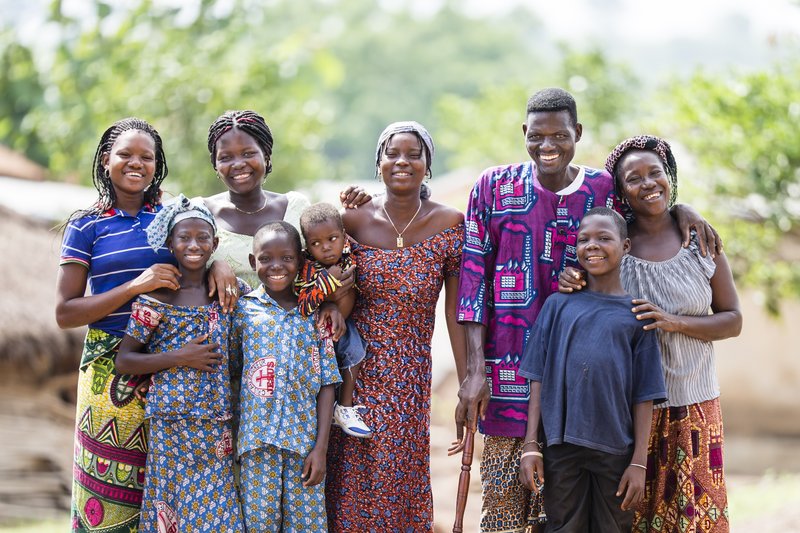
On World Mental Health Day Matt Hughsam, Director of Strategic Initiatives, citiesRise and Rycahel Eric Andriana, Y7 delegate, outline how investing in mental health and neglected tropical diseases is critical to address the suffering from the COVID-19 pandemic, but also protect generations to come.
The devastating impacts of COVID-19 have been well-documented. The pandemic has claimed over four million lives globally and bought issues of disease management, vaccine access and inequity to the fore. Yet the impacts of the pandemic on other global health issues have been underexplored. Global health issues which have largely been ignored or underinvested in for decades such as neglected tropical diseases – a group of twenty preventable but debilitating infectious diseases – and mental health have worsened due to the pandemic whilst paradoxically being further neglected.
COVID-19 has had significant impacts on people affected by mental ill-health or neglected tropical diseases, and indeed people affected by both. In a recent COVID-19 mental health impact survey conducted by the World Health Organization, results indicate the pandemic has disrupted or halted critical mental health services in 93% of countries worldwide while the demand for mental health is increasing.[i] Likewise, across the whole spectrum of essential health services, neglected tropical diseases programmes have been found to be among the most frequently affected by the COVID-19 pandemic. A recent World Health Organization survey[ii] indicated that, as of early 2021, disruptions occurred in 44% of countries and severe disruptions were reported in 19% of countries (the highest proportion of several disrupted programmes among all health services). The pandemic has also disrupted essential health services, thereby increasing social isolation and affecting access to treatments and care, while also weakening communities and systems of support.
Yet whilst the pandemic has posed clear challenges to mental health and well-being globally, we have seen few concrete investments to recognise and address this. And despite significant advocacy for greater action to support mental health by youth leaders of the Y7, the G7 countries largely failed to respond. Similarly, investments in neglected tropical diseases have been disrupted. The UK government cut over £150 million of committed funding for neglected tropical disease programmes for the 2021 financial year, disrupting treatments, some lifesaving, for over 250 million people.
This is counter intuitive. Beyond the health and social justice implications of neglecting mental health and neglected tropical diseases, failure to act brings immense economic costs. New analysis[iii] from UNICEF indicates that the annual loss in human capital arising from mental health conditions in children aged 0–19 is US$387.2 billion (purchasing power parity dollars). The estimated annual economic loss due to trachoma, just one of the twenty neglected tropical diseases, alone is US$2.9 to 8 billion[iv].
That’s why addressing underinvestment in mental health and neglected tropical diseases must be a priority, now and post-pandemic. Young people across low-, middle-, and high-income countries are advocating for our governments to collaborate and enact global solidarity to address these global health challenges.
We are calling on countries to break from historic patterns of complacency and underinvestment in mental health and neglected tropical diseases and adopt a more holistic and integrated approach to funding global health. While we recognise that governments around the world are struggling to deal with the economic challenges posed by COVID-19, we cannot shy from our collective responsibility to shape a robust recovery and rebuilding plan that promotes the health and prosperity of individuals globally. Greater investment in mental health and neglected tropical diseases should not be seen as an act of charity to be lauded; rather investment must be recognised as a global public good whose benefits are of universal reach. It is in our collective self-interest to address mental ill-health and neglected tropical diseases which not only cause immense suffering but also prevent children from going to school and adults from being able to work, resulting in individuals, communities, and countries from fulfilling their full potential.
Investing in and supporting action to address mental health and neglected tropical diseases will not only help to alleviate significant suffering resulting from the COVID-19 pandemic, but also protect generations to come. In a post-pandemic world, we cannot return to a ‘new normal’ where these crucial health and social justice issues continue to be ignored and neglected. COVID-19 has shown the entire world how highly connected we are and now it is time for global health challenges to be dealt with in solidarity and in unity.
[i] https://www.ncbi.nlm.nih.gov/pmc/articles/PMC7750653/#ref33
[ii] http://apps.who.int/iris/bitstream/handle/10665/345382/WER9638-eng-fre.pdf
[iii] https://www.unicef.org/reports/state-worlds-children-2021
[iv] https://www.who.int/news-room/fact-sheets/detail/trachoma